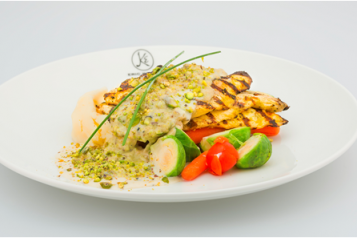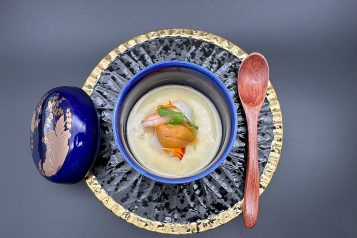
Unfortunately, stress and traveling tend to go hand in hand when plans go wrong or you simply can’t disconnect from work. That’s why we tapped him at the Buick 24 Hours of Happiness Test Drive to find out five ways to decompress, reset and make the most out of our vacations no matter what goes awry. These are his top meditation tips:
Meditate While Flying
One of the things that meditation gives us “adaptation energy” (the capacity to adjust to changes of expectation, rather than becoming stressed because things are not going our way). On an airplane we are challenged to adapt in so many ways—cramped conditions, close quarters with other travelers, recycled air (full of viruses, germs and microbes that our body must deal with), not to mention the stress put on our body by being thrown through the atmosphere at a speed we were not designed to handle. Meditation allows us to adjust to these challenges, and take them in stride, rather than to be at the mercy of them.
Practice Mindfulness While Waiting
Getting through customs, waiting for delayed flights or pickups gone awry can be very upsetting; but the biggest part of our upset can be avoided by not falling into the idea that we need to be somewhere other than where we are. Sure, it’s uncomfortable to be delayed or stuck, but the lion’s share of stress brought on by these experiences is from our thoughts that things should be different than they are. When we allow this thinking, we literally are telling our system that we cannot be comfortable or happy until things change and we get to where we are ‘supposed to be.’ To become mindfully aware of our surroundings is to bring our thinking back to our present moment reality and to the possibility of some semblance of serenity in the face of circumstances outside our ability to control.
Meditate Rather Than Nap
Travel can be exhausting, and it is sometimes impossible to fall asleep on a plane, train, bus or in a car; and even when we can catch a nap, we might end up feeling even worse after. Meditation, however, has been shown to rest us at a level two- to five-times more deeply than we rest at any time during a night’s sleep; so a meditation can have great impact on our ability to be rested and ready for whatever awaits us upon landing/disembarking.
Come To Your Senses
When traveling, we continually are ‘discovering’ what our day will be. We are in a new environment, perhaps a different culture, interacting with strangers who might have different priorities than we ourselves have. If we have strong ideas about the way things should be going, then we will be looking at everything that happens through the lens of comparison and speculation. There is a truism in the teachings of the East that ‘speculation leads only to suffering.’ Always. The opposite of speculation is to be present to the world simply as it is. You’ve heard the saying, “Come to your senses, man!” This is one way always to step out of our negative, speculating thoughts: to come to our senses.
Ask Yourself Sensory Questions
We can go through our five senses in about a minute’s time to become grounded in the present; and we can do this anytime we find ourselves in worry or speculation. Becoming grounded in our present makes us available to happiness. Can I feel my bottom against the chair, my feet on the ground, the sun on my skin, the breeze against my cheek, the fabric of my shirt against my arm? What can I smell? Especially in a foreign culture, we may have a tendency to cut off our awareness of the scents around us. Take a moment to smell the marketplace, the air, the smoke, the vegetation. What can I taste? What was the last thing I had in my mouth—the coffee, the toothpaste, the lozenge, the tropical fruit—and what does it taste like now? What am I hearing? If it’s loud and cacophonous, what are the individual sounds I can pick out? Conversations, generators, the sound of the tuktuk/airplane/taxi/rickshaw? If it’s a more quiet space, what can I hear in the distance? The wind in the trees, the far off surf, birds, animals, the hum of traffic, my feet against the sand? What am I seeing? Colors, shapes, shadows and light, intensities of light from one side of my vision to the other? Try to take it all in at once as a visual field, rather than as a series of objects.




















